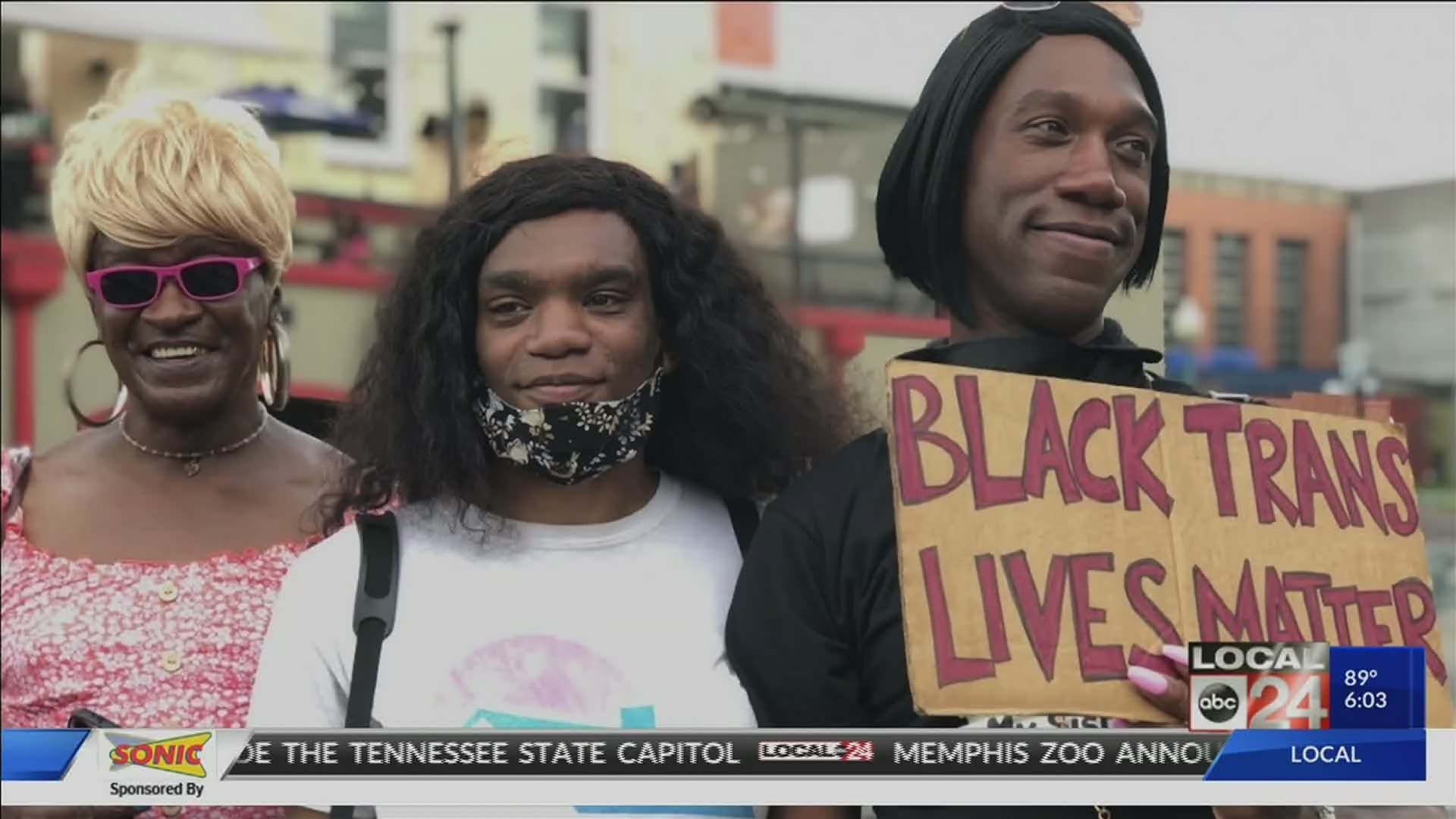MEMPHIS, Tenn. — As marches and demonstrations continue for Black Lives Matter, local advocates want to ensure black transgender people are seen and their voices are heard.
The names George Floyd, Ahmaud Arbery and Breonna Taylor, are three murdered black adults that have become the symbols of the Black Lives Matter demonstration and the search for justice and change.
There's one name that hasn't received nearly as much attention and that is Tony McDade, a transgender man from Tallahassee who was killed by police two days after George Floyd. That case is currently under investigation after witnesses contradicted the police report.
LGBTQ activists say the most silence that followed McDade's situation is a common response to these tragic events.
"It sends me a clear message and my community a clear message that our lives hold no value for a lot of folks," Kayla Gore said. "That our lives are not uplifted."
Gore is the executive director of My Sistah's House and for several years a member of The Official Black Lives Matter Memphis Chapter. My Sistah's House is a non-profit organization that provides a safe haven for the most vulnerable people in the LGBTQ community.
"We provide social services for trans women of color here in Memphis, mainly emergency housing. We also have a bail fund. We have a clothes closet, food pantry," Gore said. "Just having a place where you feel like you belong means a lot. It goes so far."
The violence black transgender people face is exactly why a place like My Sistah's House is so important.
The Human Right's Campaign reports at least 14 trans people have been killed so far this year. In 2019, 26 were killed and 29 in 2018. Many of them were black trans women.
According to a report by OUT Magazine, two of those murders happened within the last few days. Dominique Fells, of Philadelphia, and Riah Milton, of Liberty Township, Ohio, were the recent victims of gruesome murders.
Last year, the American Medical Association said violence against the trans community is becoming an epidemic.
Gore said the inaccurate portrayals and stereotypes of trans and black people factor into the violence.
"That's what people have in their head and then when they encounter us, whether they know we're trans or not, at the moment that they find out we're trans, that's when the violence happens because of those stereotypes they have about us. It's the same with black folks," she said.
So as protesters march on, Gore hopes the black trans community will be embraced with the same support.
"As a black trans woman, I'm fighting with myself. If I say these things do I look combative? Do I look divisive? But if I don't say these things, who will say them?" Gore said.
And that names like McDade, Fell and Milton are just as known. Gore says a change begins with education and conversation.
"It's having the media portray us in a good light. A lot of times when we're murdered, and if we do make the media, we're deadnamed, our genders aren't respected, so people aren't able to identify us to being trans or our transness isn't able to be identified in these stories." she said.
Currently, My Sistah's House can help home four people at one point. Gore said efforts are underway to expand their services and they hope to create a tiny village of housing opportunities for those in need. To help their mission, visit their website here.

